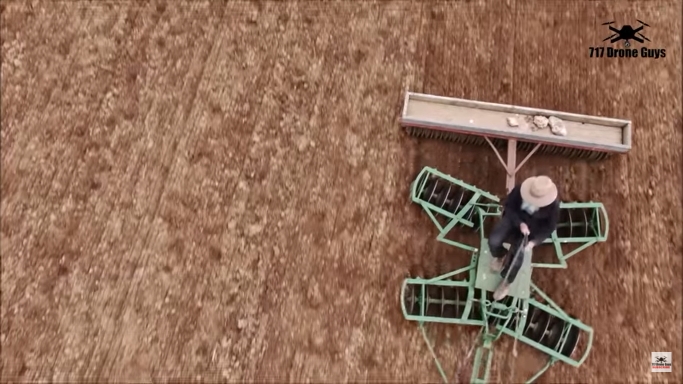Why do Amish call us “English”? (Video)
This practice dates back to the colonial era, according to John Hostetler. From Amish Society, p. 234 (footnote 1):
The Amish practice of calling outsiders “English”…can be traced to language and ethnic-group differences in colonial times. Compact settlements of Germans were distinguished from the English, French, and Spanish colonies in the New World. The Germans did not have a colony, so when the English spoke of Amish and Mennonite groups, they simply called them “Germans.” Today, when an Amish person calls someone an Englischer, it does not imply any disloyalty to America; it simply indicates that the person is non-Amish.
Not all Amish use the term “English”, however. In this video I give examples of other things which the Amish call non-Amish people. This can vary by community, and by which language the Amish person is speaking.
I remember getting a kick years ago out of learning that Amish call non-Amish Americans, myself included (having zero known ties to England or anything close to it), “English”. But if you live in one part of Ohio, for example, they call you something else. Runtime: 3:59.




Message from an “Englisher”
Several years ago we visited Amish & Englisher friends in PA.
We thoroughly enjoyed visiting our friends…(we are not Amish).
One day my husband asked our Amish friend, if he would refer to us as “Englishers”? He thought a iminute & replied, “No, I would call you a human!”
As I said, we very much enjoyed our visit with everyone, and found most all of the Amish to be kind, polite and very friendly ~ EVEN though we looked VERY different from them ~ me in my short spiky hair, sleeveless top and jeans ~
It bothers me a lot to hear people set them apart as if they are not human ~~~ God made us ALL in his image!
Do we all dress alike, speak same language, have the same physical & mental abilities, drive identical vehicles, listen to or sing the same music? You get what I mean ~ Can’t we ~ Just be Kind!
p.s. By the way, I have noticed that lately you seem to use video format more ~ than this print blog!!?
I do not like the videos as much as it distracts others who are in the same room, and takes me longer than if I can just READ it!
Do you get paid more for videos than if you just use this printed blog post/format? IF SO ~ I will understand, otherwise as an elderly senior I thought you might like some feedback! Thank you for listening!
CJ thanks for the feedback. I can understand where you’re coming from and I’m kind of the same as far as how I prefer to consume content.
I was going to write a response but since others have brought it up, I thought it might just be better to make it into a post where I explain why I’ve been doing videos as well as print posts.
You can find that here: https://amishamerica.com/a-note-on-videos-vs-printed-content-on-this-site/
By the way great response by your Amish friend. I don’t find the term English offensive in the slightest but maybe some folks would. In any case I think “human” hits at the core of it.
Printed posts versus videos
I enjoy reading news about the Amish. I think Erik does a great job with this newsletter/site.
That having been said, I agree with the earlier poster about preferring the option of reading text as opposed to having to watching videos. If Erik generates more revenue by his readers viewing content then I will help support his efforts and make time to give some of them more attention.
Thanks, I appreciate that – since this is more-or-less my full-time work, revenue does necessarily enter the picture, but it’s just as much that it seems there is a lot of space for videos and not so much knowledge on the Amish in that format, so it’s an opportunity to provide that. So far, video provides a small part but not the bulk of support for the site.
It’s gone pretty well so far, though not sure how videos will work out longer term; in any case I don’t plan to stop the printed content anytime soon (15 years of doing it, I’m too far in 🙂 ). I explain further in this new post: https://amishamerica.com/a-note-on-videos-vs-printed-content-on-this-site/
So in a nutshell, don’t feel like you need to view any videos if you don’t want to, but I certainly appreciate the sentiment.
"Englishers"
“The World”, “the World’s people”
I prefer reading
I also agree that reading the articles suits me better. As I am French, I understand the subject better by reading it, or even by rereading it slowly, rather than when I hear it. Especially since in France, we learn English “so british”, I have more difficulty to follow some American turns of phrase and expressions. Even the accent is not the same. I had already told Erik that in Alsace, we joke that Americans probably speak with a hot potato in their mouth 😉 😀
I can imagine that listening to some of my vids could be a nightmare then! Maybe two or three potatoes in my case 😀 But I will still be doing more posts than videos and don’t expect that to change: https://amishamerica.com/a-note-on-videos-vs-printed-content-on-this-site/
The Amish and Non-English "English"
Erik (and anyone who might know),
I was wondering if you might know how the Amish refer to non-Amish who don’t speak English as their first language. I’m thinking here of the growing communities of Latino folks in rural areas. I’m also thinking of my my one trip to Lancaster County, where I saw groups of Orthodox (possibly Hasidic?) Jews enjoying trips to Amish farms, buggy rides, etc. Are they all English/hochleit (pardon my spelling)?